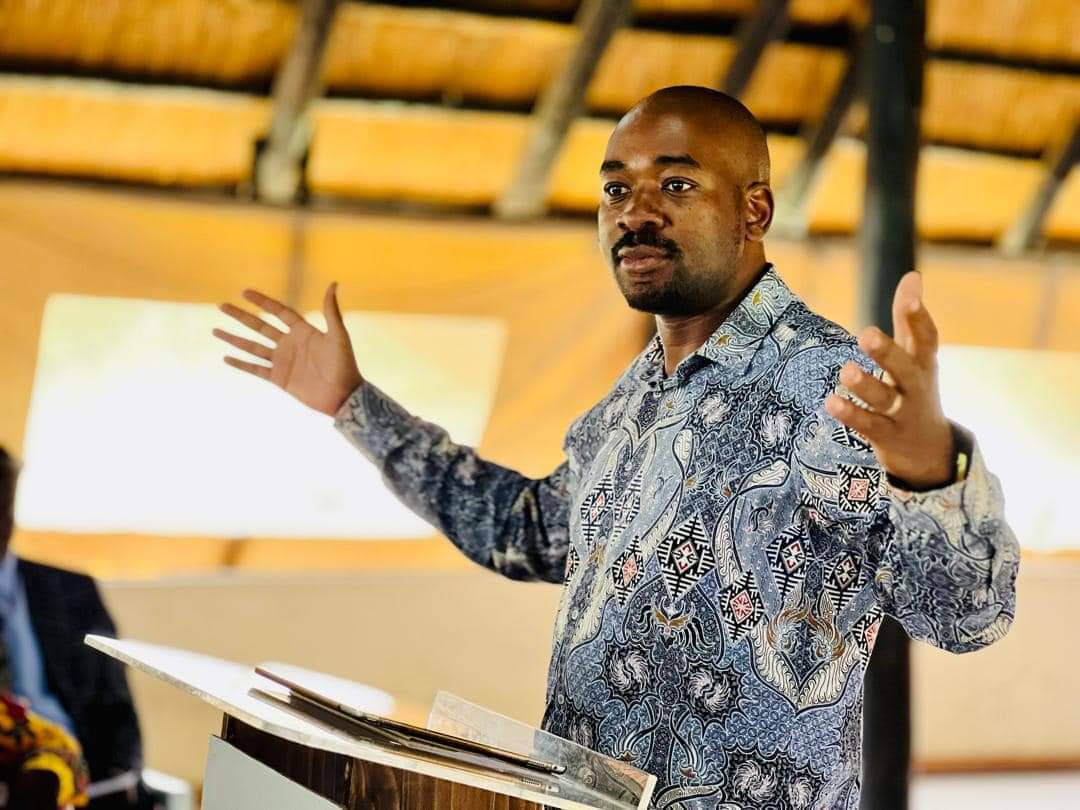By Belinda Jamela
In the tumultuous political landscape of Zimbabwe, democracy remains an elusive ideal. The recent withdrawal of Nelson Chamisa from his role as president of the Citizens for Coalition Change (CCC) underscores this harsh reality.
This development is not a standalone incident but rather a stark reminder of a long-standing history marked by the systematic suffocation of opposition parties, orchestrated by the ruling Zanu PF party.
On January 25th, 2024, Chamisa announced his resignation through a comprehensive 13-page statement shared across social media platforms and the party’s website.
He cited a series of undemocratic events that have obstructed the creation of a level political playing field for opposition parties.
His resignation was a blow to the democratic hopes of many Zimbabweans who yearn for a more inclusive political environment.
This setback for the CCC was amplified by allegations of Zanu PF deploying a Trojan horse strategy through Sengezo Tshabangu.
The self-proclaimed interim Secretary-General for the CCC, Tshabangu, recalled dozens of the party’s legislators and councillors following the disputed 2023 polls.
These elections fell short of standards set by the Southern African Development Community (SADC), the European Union, and even Zimbabwe’s own constitution, further tarnishing the country’s already troubled democratic image.
The downfall of Chamisa and the CCC can be traced back to their failure to establish robust structures, leaving them vulnerable to infiltration. Tshabango’s claim to the Secretary-General position went unchallenged due to the party’s inability to produce legal documentation supporting their chosen candidate.
This lack of organizational structure exposed the party to external threats and internal discord.
Furthermore, Chamisa’s autocratic leadership style did little to foster unity within the party. Instead, it led to disagreements over decision-making and position allocation, particularly among senior members of the former Movement for Democratic Change Alliance (MDC-A).
This discord further weakened the party, making it easier for external forces to destabilize it.
While these internal squabbles played a significant part in Chamisa’s diminishing relevance within his party, political analysts argue that the path to democracy in Zimbabwe remains clouded.
They contend that the country’s political future is being shaped by a historical pattern of elbowing opposition parties out of the political arena, a tactic employed with ruthless efficiency by Zanu PF.
Dr. Ibbo Mandaza, a political analyst, researcher, and Chairman for the Southern African Political Economy Series (SAPES), concurs with this view. He points out that since its inception in 1980, the state in Zimbabwe has consistently treated opposition as an enemy to be annihilated if necessary.
This fate befell the Zimbabwe African People’s Congress (ZAPU) under Joshua Nkomo, the Zimbabwe Union Movement (ZUM) under Edgar Tekere, the Movement for Democratic Change (MDC) under Morgan Tsvangirai, and now the Citizens’ Coalition for Change (CCC) under Nelson Chamisa.
Wellington Gadzikwa, a published scholar and political analyst, also opines that Chamisa’s resignation was inevitable. He suggests that Chamisa succumbed to politically motivated pressure from the ruling Zanu PF and state institutions, resulting in a loss of control over the party’s position and systems.
Despite stepping down, Chamisa assured his followers that he hasn’t abandoned his political ambitions. His next move could involve forming another party.
While his political career still holds promise, given his substantial following among Zimbabweans weary of socio-economic hardships caused by poor governance, the path forward is fraught with challenges.
For democracy to truly take root in Zimbabwe, the country must first address its deep-seated and toxic political culture that stifles democratic participation within its political landscape.
The resignation of Chamisa is not just a setback for the CCC, but a blow to the democratic aspirations of the nation. It underscores the urgent need for systemic changes that will foster a more inclusive and fair political environment. Until then, the dream of a democratic Zimbabwe remains a mirage on the horizon.
Cover Image: Courtesy



